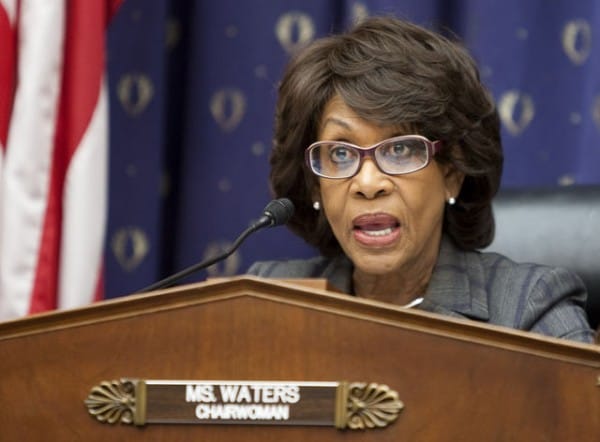Congresswoman Maxine Waters Ethics Charges Dropped

(Bloomberg / Joshua Roberts)

After a 38-month investigation, a House ethics committee announced Friday that the Maxine Waters ethics charges have been dropped. The California Democratic congresswoman was cleared of ethical wrongdoing.
Accused of using her influence as a member of Congress to secure Toxic Asset Relief Program (TARP) funds for OneUnited Bank, where her husband was a board member and in which the Waterses held more than $350,000 in stocks, Waters avoids an ethics trial in the House.
According to the former special prosecutor who was hired to conduct the investigation, Billy Martin said he "found no evidence in the record to support that [Waters'] phone call to arrange the meeting violated any House rule or any other standard of conduct." Waters' grandson and congressional chief of staff Mikael Moore attempted to meet with then-Secretary of the Treasury Henry Paulson, but only met with other Treasury Department officials. According to Martin's report, once Waters learned about Moore's activities she told him to stop, but he didn't comply. Moore has been charged with three ethics violations.
Waters, who is running for her twelfth congressional term representing the Los Angeles area, is facing fellow Democrat Bob Flores in the general election, a self-employed worker in the communications business and a former union member. Flores, who has "no campaign organization" and whose website's only functional tab is "About Bob," has raised a total of $155 according to OpenSecrets.org. He finished second to Waters in California's June open primary.
The only available statement from Flores comes from that single operating page of his website that reads, "I vow to never abuse the trust you have placed in me as your representative to Washington. The residents of the 43rd district deserve a candidate that is not mired in scandal and ethics violations." Unfortunately for Flores, he would have had to conduct a more vigorous campaign in order to maximize the negativity attached to his opponent.
Without having to face an ethics trial in the House, nor endure the albatross of ongoing ethics charges, Waters is in a good position to either rise to the chairmanship of the House Committee on Financial Services or at least become its ranking Democrat with the impending retirement of ranking Democrat Barney Frank. Facing only token electoral opposition, one of Waters' biggest obstacles may be almost out the door. Should she reach chairmanship of a committee that oversees the banking industry, it will be interesting whether rules are altered to safeguard against the ordeal she has just withstood.
Waters has been cleared of any wrongdoing, but the investigation still highlights the perils of the close ties between government, finance, and nepotism. It may have been a coincidence that Waters' husband was on the board of a bank where they invested hundreds of thousands of dollars. It may be a coincidence that Moore did not know about his employer's connection to this one particular bank. It may also be a coincidence that Moore happens to be related to the Waterses.
Representatives Bob Goodlatte (R-VA) and John Yarmuth (D-KY) of the House Ethics Committee wrote in a letter to Moore:
"Your actions blurred an already difficult and close line of permissible conduct due to OneUnited's prominent role in responding to a significant crisis affecting unknown number of banks."
The 2008 bank bailouts remain divisive even today. Part of that divisiveness stems from the perception that Washington bailed out its biggest donors while leaving smaller banks to fail. The Waters affair could have been an opportunity to shine light onto the growing relationship between government and finance, but living in such a safe district may assure that this episode recedes into memory.



